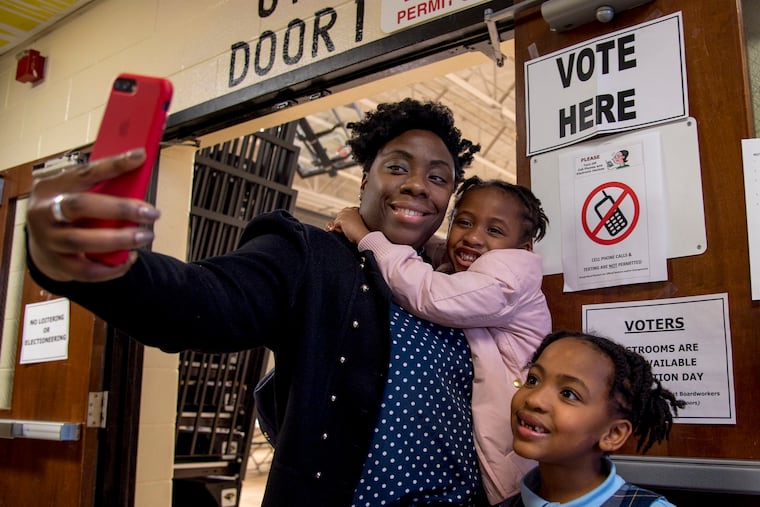Democracy depends on voter access, so why is it so hard in Pa. and N.J.? | Editorial
With Massachusetts Sen. Elizabeth Warren’s New Year’s Eve declaration that she’ll seek the Democratic nomination for president, election mania officially kicked off.

With Massachusetts Sen. Elizabeth Warren’s declaration that she’ll seek the Democratic nomination for president, election mania officially kicked off. It’s almost two years away, but the 2020 election, with a problematic partisan divide at the forefront of American politics, is shaping up to be the bout of the century as voters head to the polls to elect the president, all 435 House representatives, and a third of the U.S. senators.
Politicians, regardless of party, should have a vested interest in getting their voters to the polls. And, by showing up in record numbers for the 2018 midterm elections, voters have made it very clear that they want a say in their government.
That’s why we’re pleased to see that New Jersey Governor Phil Murphy and Pennsylvania Governor Tom Wolf are taking steps to help as many eligible voters participate as possible.
New Jersey has a head start. Legislators hope to resurrect ideas blocked by former Gov. Chris Christie in 2015.
Assembly Majority Leader Louis Greenwald (D., Camden) introduced a bill earlier this session calling for online voter registration and early voting. Senate President Stephen Sweeney (D., Gloucester) has offered his support. Both houses should get the bill moving soon, especially since Murphy says he’s on board. Greenwald recently told Inquirer staff writer Jonathan Lai that in New Jersey, “it is not an issue of suppression as much as it is of trying to modernize the system.”
But in Pennsylvania, suppression has been an issue.
In 2014, Commonwealth Court wisely killed a voter ID law that would have made it difficult for minorities, the elderly, poor, young, urban, and rural voters to get to cast ballots because they didn’t have acceptable state identification cards, like a driver’s license, or easy access to PennDot centers, to obtain them. Given that history, Wolf’s push for making voting easier is likely to meet opposition in the legislature, which is dominated by Republicans, many of whom supported the failed voter ID law.
Wolf wants to update the state’s absentee ballot system, which has such unreasonably tight deadlines that ballots come in late and thousands are disregarded. Wolf would also allow eligible voters to register on Election Day, and have automatic voter registration when people apply for drivers’ licenses. Before mouthing their opposition to the Democratic governor’s ideas, Republicans should recognize that they’ve got much to gain. The more voters who participate, the more likely it is that their voters' voices will be heard.
And voters around the country are speaking up. In 2018, Florida’s electorate restored voting rights to convicted felons when they complete their sentences. Nevada voted for automatic voter registration, and both Maryland and Michigan voted for Election Day registration.
New Jersey and Pennsylvania political leaders would be wise to pay attention and make voting as inclusive as possible. When automatic voter registration was implemented in California last year, for example, the state reported that more than 260,000 people registered to vote.
Our democracy depends on ensuring that the widest variety of viewpoints are represented in government. If some people are shut out of elections, we all suffer.